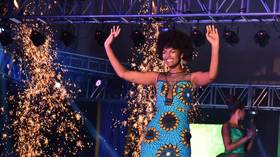Covid-19 vaccine: Difficult, uncertain and far-off, microbiologist says
A US company which worked on the development of a MERS virus vaccine has begun a clinical trial to test a Covid-19 vaccine — but similarities between the two don’t mean the process will be easy, a microbiologist told RT.
The potential new coronavirus vaccine is being developed by Moderna Inc., which is building on previous work on MERS (Middle East respiratory syndrome) — a disease which originated in Saudi Arabia in 2012 and was also dubbed the ‘camel flu’ due to the fact that it is believed to have been spread to humans through the animal.
The first tests conducted by Moderna are focused on assessing side-effects and whether the new vaccine is safe for humans, not whether it is effective against Covid-19, Sergey Netesov, who heads the microbiology and virology laboratory at Novosibirsk State University, told RT.
Also on rt.com Patient ESCAPES from Moscow coronavirus hospital, chief doctor slams ‘ignorant behavior’Indeed, the Associated Press reported Monday that there is “no chance” that the healthy trial participants could get infected by the shots because at this point they do not contain the virus itself.
“Such tests are usually carried out on several dozen volunteers, who are usually young and very healthy people. If it is proven that the vaccine is safe and stimulates the production of effective immune response in the organism to the virus, the company will be cleared for the next phase of the tests,” Netesov told RT.
The issue is, while coronaviruses causing infections like MERS and Covid-19 are “not that different” and have a genome which is “similar” in structure (about 50 percent homology) — it does not necessarily mean “that a vaccine initially developed against MERS would be effective against COVID-19, but the vaccine design is similar,” Netesov said.
However, Moderna’s previous work on MERS, and the general knowledge it acquired in those studies, means it could indeed develop another coronavirus vaccine faster than other companies might, he said.
Also on rt.com ‘Not with a bang but a twerk’: Netizens dumbfounded as partygoers ignore coronavirus ‘social distancing’ pleas (VIDEOS)Netesov, who was involved with testing vaccines for Hepatitis A in the 1990s, noted that one of the most important issues is to ensure that the vaccine has no long-term delayed adverse effects. This is why vaccines are the type of medicines with the longest trial periods, he explained.
This means it could take a year to 18 months to validate any new coronavirus vaccine — but the world can’t afford to wait that long to take action against the rapidly spreading virus. So far, there are only two nations which have beaten back the epidemic: China and South Korea.
“They had different approaches. China did it through almost total quarantine in a number of provinces. Korea instead organized the most wide-scale health checks, including voluntary paid testing for coronavirus genome presence” Netesov said, adding that it is Seoul’s approach that the US seems to want to follow.
“Since the disease can be transmitted when no symptoms are visible, every person must have an opportunity to check their health to be sure they are not infected,” he said.
Like this story? Share it with a friend!














